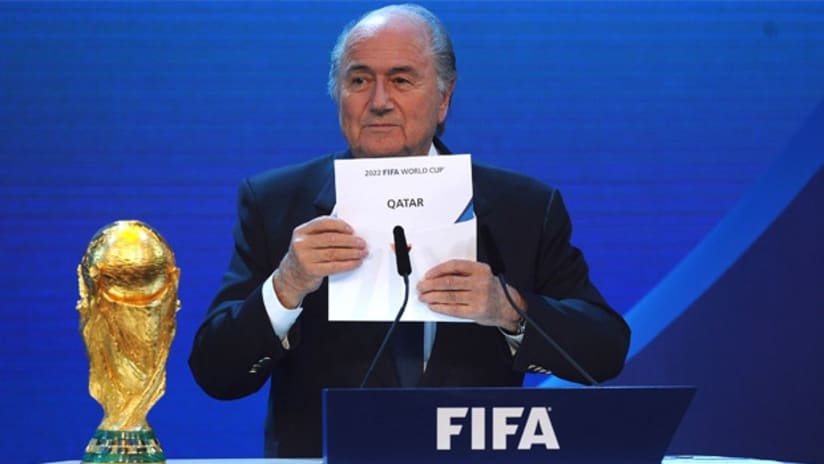The host countries for the 2018 and 2022 FIFA World Cup were announced earlier today in Zurich, Switzerland. Russia landed the 2018 event in competition with England, Belgium/Netherlands, and Spain/Portugal. Qatar won the 2022 World Cup over Australia, Japan, South Korea, and the United States. Congratulations to them. Both winning countries’ representatives promised that FIFA and the world will be proud of the events they host. I wonder if anyone in those countries’ bid committees ever heard of the winner’s curse?
I wonder because bidding for the World Cup is a perfect place for such a curse to arise. The basic idea is that there is a prize of uncertain value sought after by numerous bidders — none of whom has much experience in assessing the true value of the prize. This lack of expertise is the result of the prize (or other very similar prizes) going on auction only rarely.
Each bidder makes a good faith effort to determine the true value of the prize, but because of the uncertainty, none of the bidders is likely to get the value exactly right and, indeed, all of them are very likely to be wrong. Some will be wrong by a little, some by a lot. Some will undervalue the prize, while others will over value the prize. The “winner” — in our case the countries that get to host the World Cup — are those bidders that overvalue the prize most. Hence, the winner is cursed to overpay to acquire the prize.
To read the rest of this story, visit http://freakonomics.blogs.nytimes.com/
Why Losing the World Cup Bid Is a Big Win


